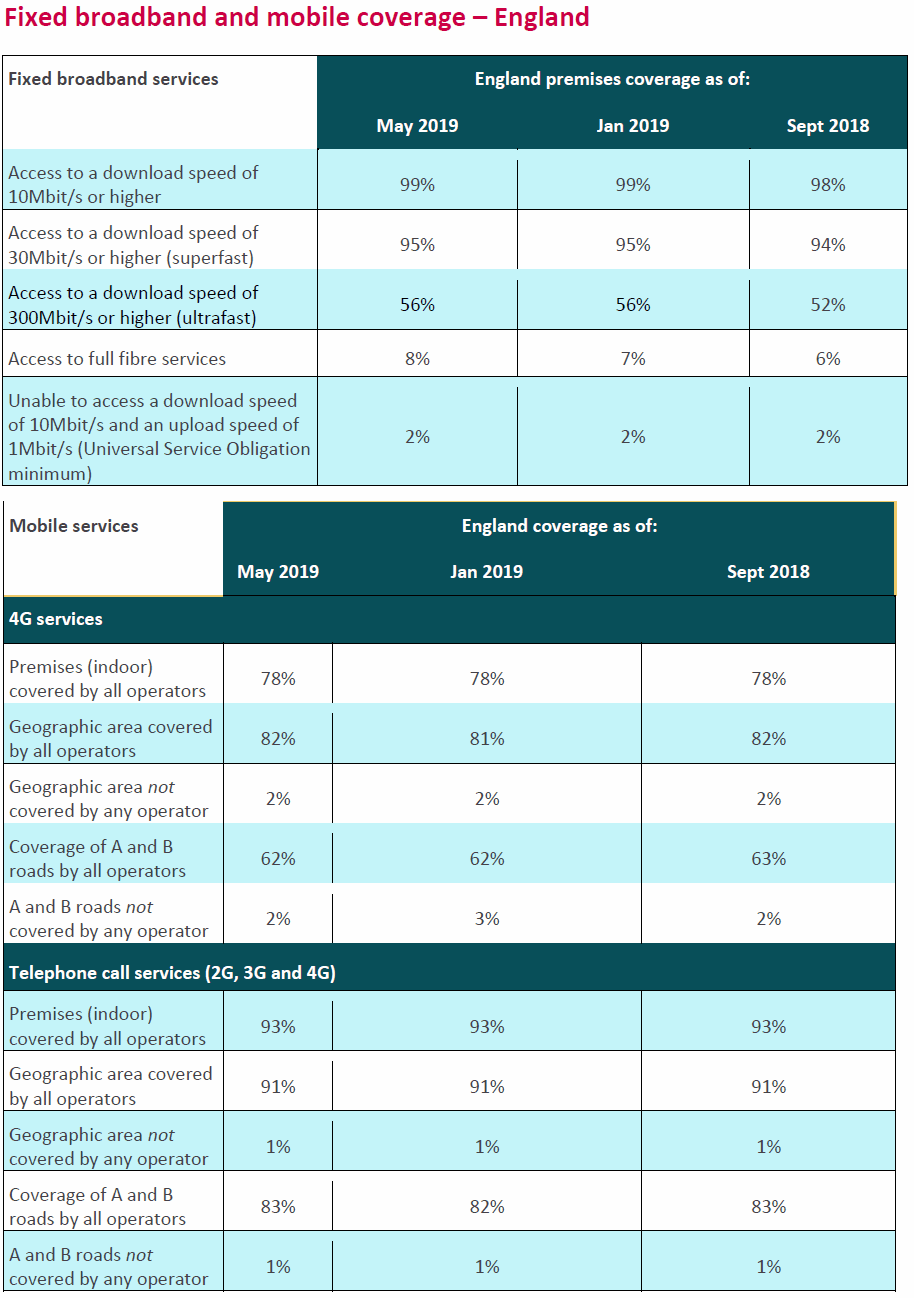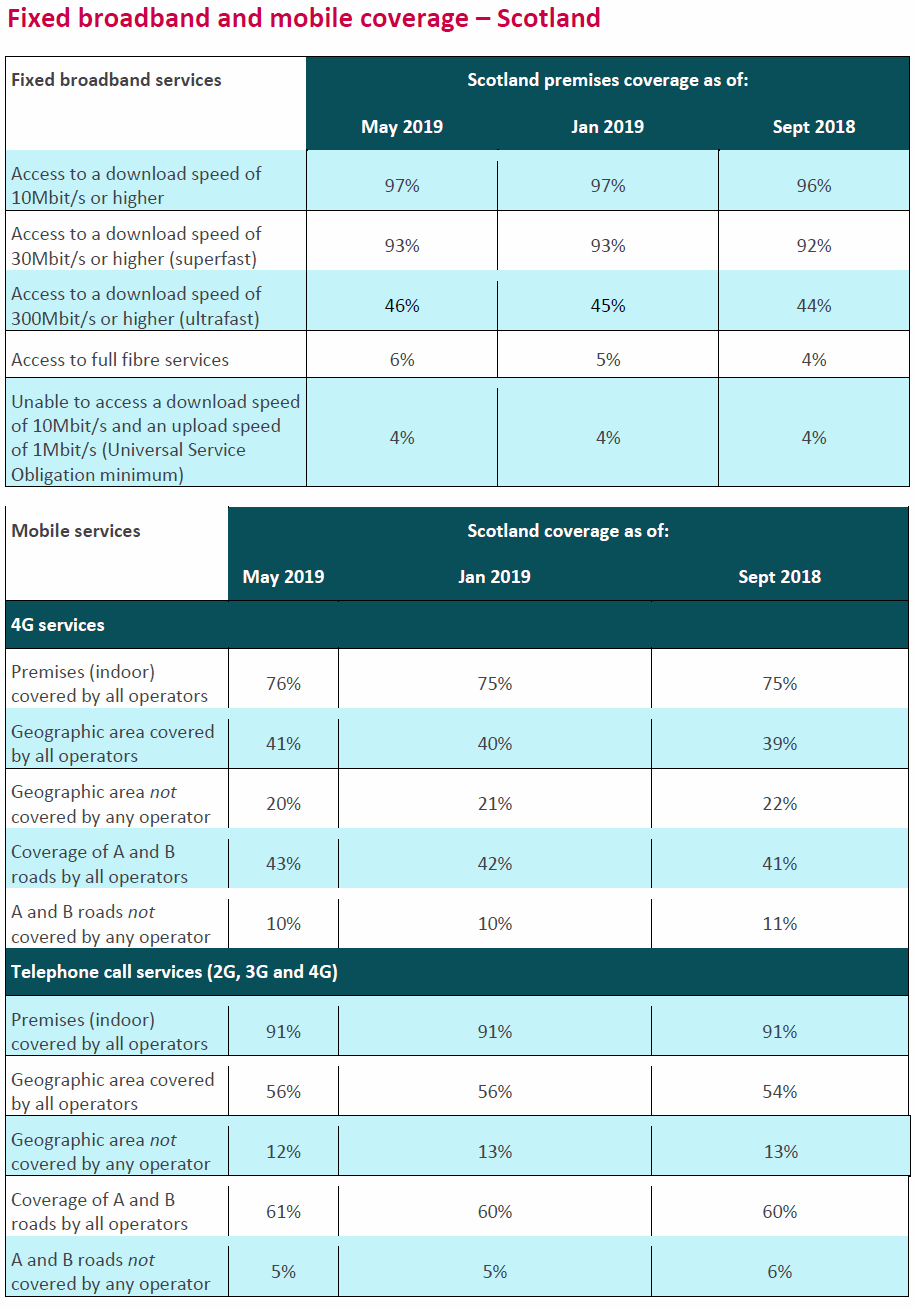Ofcom – 10Mb Broadband USO Gap Shrinks to 578000 UK Premises
Ofcom has published a Summer 2019 update to their Connected Nations report, which reveals that “full fibre” (FTTP) UK broadband coverage has risen to 8% (up from 7% four months ago) and the number of premises unable to get 10Mbps+ has declined from 619,000 to 578,000. Geographic 4G mobile cover remains at 66%.
Today’s new report is actually based on coverage and service availability information received from ISPs and mobile network operators as of May 2019, which is thus four months more current than the January 2019 data in their previous Spring 2019 update.
The other key changes since Ofcom’s previous study are that “ultrafast broadband” availability (defined by the regulator as speeds of 300Mbps+) has risen from 53% to 54% of UK homes and businesses, while “superfast broadband” (30Mbps+) coverage has held steady at 95%.
Advertisement
Most of the ultrafast growth comes from the expansion of Virgin Media’s cable network, although Openreach has also been very busy deploying both G.fast and FTTP technology. Similarly lots of alternative network ISPs are helping to spread FTTP at an increasingly rapid pace (Summary of Full Fibre Plans), with Cityfibre and Hyperoptic being two of the biggest movers in that crowd. Overall about 2.5 million premises can now take FTTP (up by +400,000 between January and May 2019).
A Spokesperson for Openreach said:
“The Full fibre build is the largest upgrade to our digital network in a generation and has the ability to unlock huge social and economic benefits. We are proud to be leading the way having reached over 1.5 homes and businesses already but we want to go further, faster and continue to work with Ofcom and Government to ensure they create the right conditions for a nationwide roll out.”
The improved fixed line broadband coverage means that the number of premises that cannot get a “decent broadband” (10Mbps+) service has fallen to 2% or 578,0000 premises (down from 619,000 in the spring update). A download speed of at least 10Mbps and an upload of 1Mbps also represents the specification for the UK Government’s imminent broadband Universal Service Obligation (USO).
Meanwhile 4G mobile networks have seen their indoor coverage by all operators (EE, Three UK, O2 and Vodafone combined) hold steady at 77% and geographic coverage from all operators remains at 66% over the same period. Ofcom seems to have tweaked their methodology for 4G coverage as the historic figures have changed slightly.
May 2019 Coverage Data by Region
The following table summarises the latest mobile and fixed broadband coverage figures for Scotland, Wales, England and Northern Ireland individually and you can get more detail by downloading the full Summer 2019 Update (PDF).
Advertisement




Advertisement
Mark is a professional technology writer, IT consultant and computer engineer from Dorset (England), he also founded ISPreview in 1999 and enjoys analysing the latest telecoms and broadband developments. Find me on X (Twitter), Mastodon, Facebook, BlueSky, Threads.net and Linkedin.
« Virgin Media UK Boosting Upload Speeds for 100Mbps Tier
Cross-Party MPs Criticise Weak UK Rural Broadband and Mobile »
















































Comments are closed